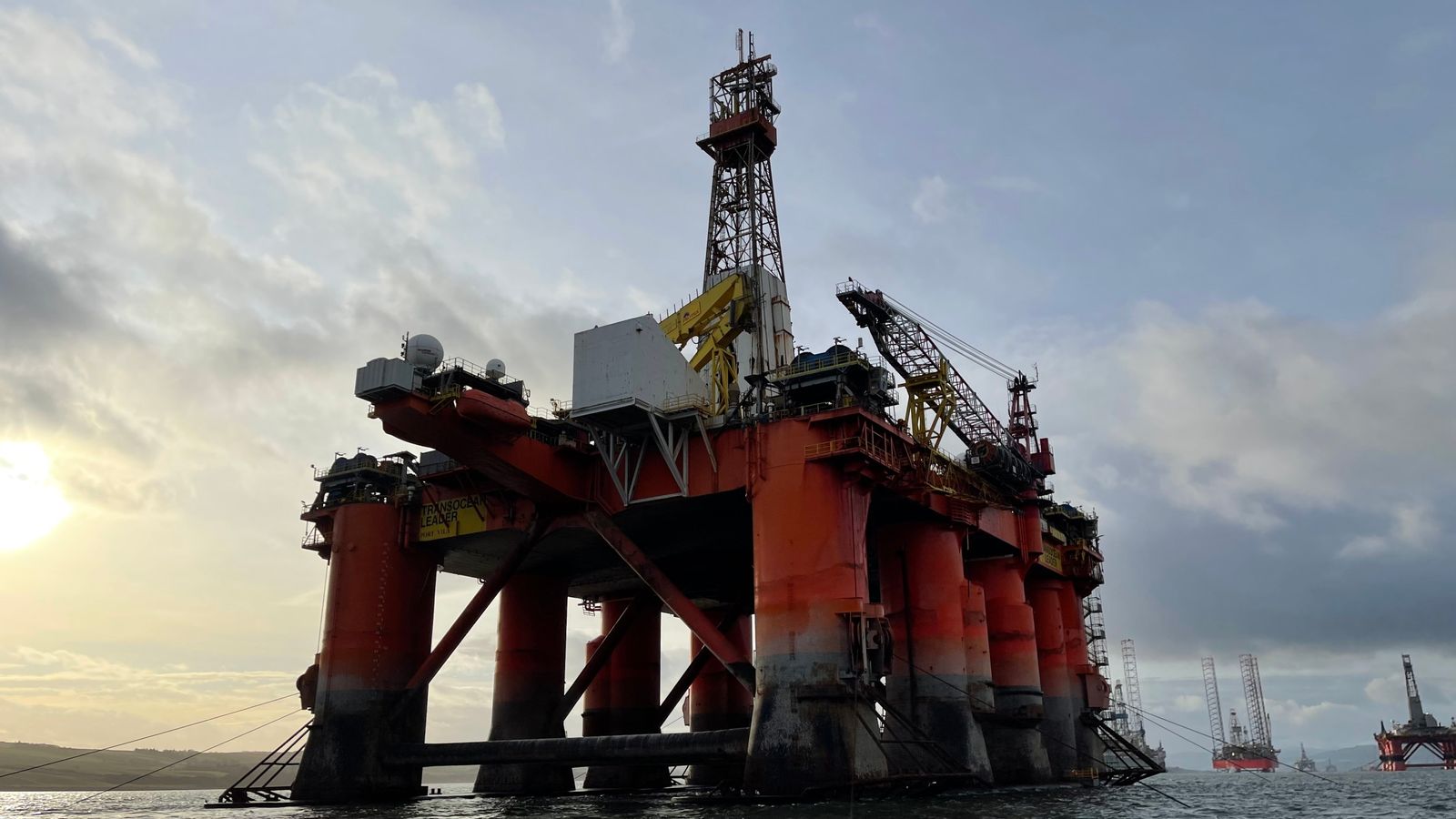Is the UK’s North Sea oil and gas field approval process handled by an arms-length regulator, as the government has previously and frequently insisted?
Or has there been an intervention by Chancellor Rishi Sunak who reportedly asked Business Secretary Kwazi Kwarteng to speed up licensing in order to improve this nation’s energy security?
It’s hard to have it both ways.
Please use Chrome browser for a more accessible video player
According to The Daily Telegraph, Mr Sunak requested that Mr Kwarteng “fast-track” the final approval of six oil and gas fields currently under consideration.
Such a request would be significant given the government has repeatedly insisted that all North Sea drilling licences and permits are run through a robust regulatory framework overseen by the independent Oil and Gas Authority, and that, for example, it had no ability or authority to intervene in the controversial Cambo oilfield when it was in the headlines last year.
Government sources have told Sky News that they are unaware of any requests from the Treasury to Department for Business, Energy and Industrial Strategy (BEIS) to fast-track fossil fuel projects, adding that they don’t recognise the assertion that the chancellor directly involved himself.
More climate news:
Regenerative farming ‘could slash emissions equivalent to taking 900,000 cars off the road’
Is net zero and environmental policy responsible for rising energy bills?
Energy price cap rises: Households will be in ‘deep peril’ and older people will be ‘badly shaken’ by increase in bills, charities warn
Energy price cap rises: Sunak announces £350 government rebate to help pay bills
Voters losing faith in ‘all fur coat and no knickers’ PM as Sunak tries to soften cost of living crisis and advance his own cause
But neither department seems willing to formally address what did or did not happen.
In a statement, BEIS spokesperson would only say: “There will continue to be ongoing demand for oil and gas over the coming years as we transition to cleaner, more secure forms of energy generated in this country.
“As the business secretary has said, turning off our domestic source of gas overnight would put energy security, British jobs, and industries at risk, and we would be even more dependent on foreign imports.”
The Treasury said that it would not provide an on the record statement, instead directing all queries back to BEIS.
The Oil and Gas Authority told Sky News that it could not comment on individual licences and that there were no formal channels available for requesting a fast-tracked approval of a new field, which often take decades to move from the discovery of oil and gas to drilling.
Follow the Daily podcast on Apple Podcasts, Google Podcasts, Spotify, Spreaker
The government’s current North Sea policy is known as “Maximum Economic Recovery” and allows for continued and new extraction, even as the basin declines and the country transitions to renewable and nuclear energy under the net-zero carbon emissions by 2050 target.
But there are growing calls from within the Conservative party to increase domestic drilling above what is already planned in order to improve national energy security.
At the moment BEIS is consulting on a new so-called environmental checkpoint that would be applied to new fields but campaigners say that even with more stringent standards, all North Sea drilling contradicts both the 2050 target and the UK’s position as a global leader on climate change.
Both the UN and the International Energy Agency have recently said that in order to hit global climate change targets there must be no new extraction of fossil fuels anywhere.





















